The update is a bit shorter this week, focussing on the bigger news on research and education. The next update will be in a couple of weeks.
Research and knowledge exchange
Ref changes: the wheels on the bus go round and round
There’s nothing new in policy and politics. As the debate rages about research culture and environment, how to measure it and whether we even should, there is a blog on Wonkhe reminiscing about the similar debate in 2009 around impact.
There’s an update from Research England here: Overall, the community has expressed clear support for the principle of an increased emphasis on PCE in the next REF, while outlining concern around the need for careful consideration of the reporting burden on the sector and the potential dangers of metricising culture or prescribing what good looks like.
Plans for taking this forward were confirmed in an update on people, culture and environment from UKRI which said that the extra time used by the postponement of the next REF from 2028 to 2029 would enable them to run a pilot exercise alongside a project to develop a set of indicators.
- The PCE indicators project will provide multiple opportunities for the sector to engage with the development of the PCE indicators. Desk-based research will draw on a variety of sources including Environment statements from REF 2021, feedback received through prior engagement and consultations with the sector, and other published reports. The initial consultation during spring 2024 will comprise in-person workshops in each of the four UK nations and a series of online thematic workshops. ….. Once the draft indicators have been developed, and in parallel with the PCE pilot exercise, a second round of consultation with the sector will be conducted gathering feedback through workshops and an open consultation (survey). ..
- The pilot exercise will focus on a sample of UoAs (we anticipate in the region of 8 UoAs) selected to provide a general insight into the assessment of PCE for similar subject areas and to highlight particular issues or special considerations that may exist for the assessment of PCE. ….
- Institutions will be invited in March 2024 to apply to participate in the pilot exercise, …. We anticipate selecting around 30 institutions to make submissions to the pilot exercise. …
- Institutions that take part in the pilot will be expected to produce unit-level submissions for between 1 and 8 UoAs and also an institution-level submission. These submissions will be based on the indicators identified and developed templates emerging from the commissioned work on PCE indicators.
- Pilot panels will be comprised of academics, research professionals and others with appropriate expertise. Recruitment of pilot panels is anticipated to be in April 2024 and will be through an open process, to a set of tightly defined criteria. …..
Doctoral funding and training
There’s a UKRI update out with a new statement of expectations for Doctoral Training.
Education research areas of interest
You can read about the DfE’s areas of research interest here. What is this for?
- In practical terms we hope this ARI document will steer and support researchers in developing relevant evidence and enable them to make stronger funding bids by linking their work to these priorities.
The areas of interest include:
- Skills: Drive economic growth through improving the skills pipeline, levelling up productivity and supporting people to work. 1a. What are the country’s future skills needs to support growth and prosperity, particularly in STEM and green skills? 1b. What are the organisational challenges and opportunities facing higher education (HE) and further education (FE) institutions? 1c. What are the funding, system and market challenges and opportunities for increasing participation in technical education, apprenticeships and adult training? 1d. What are the drivers of UK and foreign students’ decisions about pathways into and out of FE and HE, including impact of funding, finance and experience
- Artificial Intelligence (AI) and Technology: Harness the use of AI, technology and data across our sectors to support safe and effective use within education 5a. What are the potential impacts of AI, and how can new technologies be used safely and effectively within education? 5b. How can the impact of digital technology be robustly measured, and implemented in a way that supports teachers and students? 5c. What approaches or innovation are needed to support the efficient handling of data within education settings?
Education
Complaints
The Office of the Independent Adjudicator published its annual report.
- In 2023 we received 3,137 complaints, our highest ever number. This is 10% more than in 2022, and followed increases in each of the previous six years
They are also consulting on new scheme rules: this consultation closes on 8th March 2024.
The OIA handles individual complaints and deals with complainants and universities quietly, but also publishes anonymised case studies which make interesting reading and a useful reference point.
The latest from January is on complaints relating to accommodation:
- The case summaries show that students are not always clear about what they have signed up to, or about how to formally raise issues when they have concerns. It is important that providers’ information for students is as clear and easily accessible as possible, keeping in mind that for some students it is the first time they have lived independently away from home, or lived in a different country.
- Sometimes the issues raised in complaints are about the accommodation itself, and sometimes they involve the student’s behaviour or that of other students in the accommodation. It’s important that the provider investigates the issues, considers the impact on those involved and takes steps to minimise it, and keeps the student informed. ..
- We encourage early resolution of complaints where possible. In some of the cases we have seen, the provider recognised issues either during its internal processes or in the early stages of the student’s complaint to us and made an offer to the student to put things right. Sometimes complaints to us are settled in this way. Where the student doesn’t accept what we consider to be a reasonable offer, the complaint to us will usually be Not Justified on the basis that a reasonable offer has been made, and the case summaries include some cases with this outcome.
The previous update relates to disciplinary matters.
You can search them all by theme here
Staff/student ratio and student experience
An interesting blog for Wonkhe in Feb 24 demonstrates that there is no correlation between lower SSRs and student experience however you cut the data:
- “Plotting student:staff ratio against NSS fails to show even a non-significant relationship between satisfaction and staff numbers. Looking primarily at NSS question 15 (which relates to the ease of contacting teaching staff and seems most likely to see an impact from staff student ratios) there are no clear relationships between our two variables in any subject area”.
A common narrative when this is discussed is that SSR data is distorted by research only staff, but the Wonkhe data excludes them.
Generative AI and assessments
There’s a new HEPI/Kortext policy note out: Provide or punish? Students’ views on generative AI in higher education. There are some interesting findings including:
- More than half of students (53%) have used generative AI to help them with assessments. The most common use is as an ‘AI private tutor’ (36%), helping to explain concepts.
- More than one-in-eight students (13%) use generative AI to generate text for assessments, but they typically edit the content before submitting it. Only 5% of students put AI-generated text into assessments without editing it personally.
- More than a third of students who have used generative AI (35%) do not know how often it produces made-up facts, statistics or citations (‘hallucinations’).
- A ‘digital divide’ in AI use may be emerging. Nearly three-fifths of students from the most privileged backgrounds (58%) use generative AI for assessments, compared with just half (51%) from the least privileged backgrounds. Those with Asian ethnic backgrounds are also much more likely to have used generative AI than White or Black students and male students use it more than female students
Based on these findings, the authors recommend:
- Institutions should develop clear policies on what AI use is acceptable and what is unacceptable.
- Where AI has benefits, institutions should teach students how to use it effectively and how to check whether the content it produces is of high quality.
- To prevent the ‘digital divide’ from growing, institutions should provide AI tools for those who cannot afford them when they have been identified as benefitting learning.
- The Department for Education (DfE) and devolved administrations should urgently commission reviews to explore how academic assessment will be affected by AI
There’s a Wonkhe article by Jim Dickinson here.
Quality assessments
The Office for Students have published two more quality assessment reports: concerns were found in both of these, to add to the two previous ones where concerns were found. Most of the reports published so far relate to business and management, the one published so far for computing confirmed that there were no concerns. There are a few more expected.
It is helpful to look at some of the themes picked out in the four reports so far that identified regulatory concerns:
| Theme |
Finding |
| Teaching quality, delivery and learning resources |
· The teaching and learning resources used to teach disciplinary knowledge were not consistently up-to-date.
· The manner of teaching delivery meant that courses were not consistently effectively delivered.
· Delivered content was not consistently informed by up-to-date, discipline specific academic theory and research. This meant that courses did not consistently require students to develop relevant skills.
· The cohort of students recruited by the university required high quality resources to support their independent learning. However, the quality of the virtual learning environment (VLE) was not consistent, with some modules having inadequate learning materials to facilitate the cohort of students’ learning |
| Course delivery: format and timetable |
Not enough flexibility in course delivery to support the cohort of students recruited, namely not providing sufficient flexibility when students had to work to finance their studies or have caring responsibilities, having recognised that this was a specific feature of their intake. |
| Academic support |
Student academic support needs were not consistently identified, limiting the opportunity for senior and academic staff to enhance the quality of poor-performing modules and improve the academic experience of students. |
| Monitoring and management of attendance and engagement |
Inadequate central monitoring and pro-active management of engagement and attendance and over-reliance on individual academic staff to follow up. Recommendations included:
· Clear lines of responsibility at faculty and university level regarding who the lead for continuation is, and further channelling of university-level resource, expertise and effort towards the continuation problem in the Business School.
· Systematic analysis of student failures on modules and historical withdrawals, to provide a more detailed picture and understanding of why students do not continue their studies at the university.
· Better real-time monitoring of engagement and a university-level set of criteria that can be used to identify a student who may be at risk of dropping out, combined with systematic analysis of student behaviour and non-attendance so that proactive additional support can be offered |
| Assessment and feedback |
· The format for providing formative feedback on assessments may not have been sufficient for some students across a number of modules reviewed. … the assessment team considered that ensuring consistent access to formative feedback is a step that could have been taken to ensure students have sufficient academic support to succeed
· A review of examination board processes and module performance criteria to ensure that under-performing modules are being picked up and addressed through the quality assurance and enhancement system. |
| Allowing up to six attempts to pass an assessment (for those students that resit a module) without a clear underpinning pedagogic rationale, brought into question the rigour of the assessment and diluted the challenge provided that was relevant to the level of the course. The team considered that because those students were permitted to attempt an assessment that was lacking in rigour and challenge, it meant that those students were not assessed effectively |
| Academic misconduct |
Support for avoiding potential academic misconduct was not consistently provided in assessment feedback via the online assessment platform at Level 4 |
| Foundation year students |
Insufficient academic support for foundation year students once they progressed onto the main programme – support should have continued at higher levels |
| Staffing |
Insufficient staff to provide adequate support, impacting personal tutoring, assessment and feedback and academic support |
| There was considerable variability between the pedagogical and teaching skills of different academic staff across business and management courses including an overreliance on PTHP which had an impact on learning and outcomes |
| Leadership and governance |
A lack of adequate educational leadership and academic governance was affecting the overall academic experience of students: this included gaps in key leadership roles and no plans or arrangements to cover, and inadequate noting and oversight of key data and action plans |
There’s a Wonkhe blog on the latest two reports here.
Why do these matter? Here is a reminder of the relevant licence conditions invoked by the OfS in relation to these issues
Apprenticeships
It’s National Apprenticeship Week and so a new standard has been announced: this time for teachers. You can read the Secretary of State’s announcement here.
- With a TDA, you’ll work in a school while you gain qualified teacher status (QTS), which you need in order to teach in most schools in England. At the same time, you’ll be studying for a degree.
- It means trainees won’t take on student debt and will earn while they learn, supporting those who may not have the financial means to do a traditional university-based teacher training programme.
- It will be available for people to train as both primary and secondary teachers.
- Subject to final approval, schools will be able to start recruiting apprentices from autumn 2024, with the first trainees beginning the programme in 2025.
Student experience, wellbeing and finances
The Office for Students have announced that they will launch before the end of the academic year a competitive process to allocate £2m towards projects to “seed new practices and test new ideas” supporting equality of opportunity.
Mental health and duty of care
Wonkhe have the story about a recent coroner’s report.
There is a first report from the Department for Education’s HE Mental Health Implementation Taskforce. Wonkhe are critical in a blog here.
As a reminder what this was for and a summary of the progress made so far:
Objective: adoption of common principles and baselines for approaches across providers, such as through sector led charters
- The Minister for Skills, Apprenticeships and Higher Education wrote to all HEPs in June 2023 asking for ownership of mental health at an executive level to drive adoption of best practice. A target was also set for all universities to join the UMHC Programme by September 2024. In October 2023 Student Minds confirmed significant progress had been made, with 96 members now signed up across the UK, representing a greater than 50% increase in membership. Of those, 83 are English members, over two thirds of the cohort in scope of the UMHC Programme target.
- Student Minds intends to undertake a light-touch review of the Charter and award process to begin early in 2024.
- Next steps: Understand the means by which HEPs construct their mental health strategies and engage with the sector to understand where additional work may be impactful (particularly with regards to the formulation and oversight of HEP mental health strategies) by May 2024.
Objective: better identification of students in need of support and a clear user journey for accessing that support
Workshops have been held and three broad approaches considered:
- Staff training and competence
- Mental health analytics
- Encouraging early disclosures
Next steps: It is proposed that the following work take place prior to the second stage Taskforce report:
- Consider the evidence for the effectiveness of different training programmes to raise awareness for non-specialist staff, identify examples of good practice, and share these within HEPs as well as sector agencies which may design and deliver staff accreditation processes (e.g. Advance HE);
- Work with the sector, and potentially Jisc and system suppliers, to develop and promote guidance for HEPs looking to implement student analytics or other related data systems, paying particular attention to supporting HEPs to improve their data governance; and
- Work with UCAS to support their developing work around student surveys and references, facilitating discussions between UCAS, HEPs, FECs and schools to understand what additional information might be collected, the means to do so, and how this might be shared with HEPs. Feed into the work of the HE Student Support Champion on understanding and establishing methods of addressing barriers to schools and FECs sharing information with HEPs on students’ previous educational records, including their mental health needs.
Objective: development of more sensitive policies, procedures, and communications within a proposed HE Student Commitment
Sector engagement has uncovered challenges faced by HEPs when endeavouring to make improvements in this area:
- the need for a broader range of good practice exemplars, in particular compassionate policies;
- the requirement to adapt existing and emerging practice to the precise requirements of each individual provider;
- the centrality of creating a consistent, whole institutional approach, where many sources of communications and interactions become mutually reinforcing;
- the vital role of senior leaders in setting the tone for a compassionate culture;
- the volume of material to be revised, in the context of resource constraints and competing priorities; and
- the balance between compassion and the need to be clear about requirements and potential consequences of non-observance.
Next steps It is proposed that the following work take place prior to the publication of the second stage report:
- Consult with the wider sector and students on the agreed principles;
- Continue to engage with the sector to identify further examples of embedding compassionate principles into policies, procedures, and communications;
- Develop material that can be utilised by the OIA;
- Continue to promote the importance of this area with senior leaders with responsibility for overseeing policies, procedures, and communications, and more broadly with HEPs and their professional bodies; and
- Deliver a national event to promote the Commitment
Objective: Effective local case reviews and engagement with the National Review of HE Suicides, including generation of insights into mental health services on offer by HEPs, and exploration of the methods for achieving greater timeliness and transparency on suicide data
- In November 2023 DfE appointed the University of Manchester’s National Confidential Inquiry into Suicide and Safety in Mental Health (NCISH) to conduct the National Review.
- In scope of the National Review will be suspected suicides and attempted suicides with an initial focus on those that have occurred in the Academic Year 2023/24. HEPs will be encouraged to submit their reviews to NCISH. Guidance to support HEPs to engage with this activity will be shared with the sector in early 2024.
- HEPs will be able to make use of the template for serious incident reviews set out in the UUK Postvention guidance, published in December 2022, though this template is not mandatory. The National Review’s final report will be published by spring 2025 and will outline lessons around good practice and areas for improvement, drawn out from submitted reviews.
International
International student admissions
Immigration, including the impact of international students, remains a hot political topic.
The big story in the Sunday times on 28th Jan was about international students taking the place of better qualified home students. The paper is behind a paywall, but the Guardian report is here. There has been a lot of pushback on the original story which seemed to compare admissions requirements for foundation courses with degree courses.
There’s a UUK update on the story here.
UUK also published on 2nd Feb a statement about what they are going to do in response:
- Review the Agent Quality Framework (AQF) and make recommendations to enhance the system. We will:
- Work with our members and partners to ensure adoption of the AQF across the sector.
- Make recommendations on how the AQF and wider UK data infrastructure can be enhanced to identify and address bad practice and improve resilience.
- Review of quality and comparability of International Foundation Programmes (IFPs) and Foundation Programmes for Home (UK) students. We will: commission the Quality Assurance Agency (QAA) to undertake a rapid review of IFPs. The review will compare requirements of International and Home Foundation Programmes, including entry requirements.
- Update the Admissions Code of Practice to clearly state its applicability to international recruitment. We will: review the Admissions Code of Practice to signpost where the Code is expected to apply to international recruitment and update the Code if appropriate.
The DfE are also looking recruitment practices: see this Research Professional article.
International student outcomes
This report in the FT talks about data from the Migration Observatory at Oxford University.
- The number of overseas graduates staying on in the UK to work in care rose more than six-fold last year, according to research that puts a spotlight on unintended consequences of the government’s migration policy.
- More than half of all foreign students who switched from graduate visas to skilled worker visas in the year ending June 2023 went into care work, the Migration Observatory think-tank at Oxford university found via freedom of information requests.
- Some 26,200 overseas graduates were recruited into the care sector, from 3,900 in the year to June 2022, the data showed.
- “Most international students graduate from masters programmes in subjects like business, engineering and computer science, so it is striking to see so many take roles in care, which requires few formal qualifications,” Ben Brindle, researcher at the Migration Observatory and co-author of the report, said.
- Brindle noted that while some graduates taking care roles may want to work in the sector, others will have taken on the work, despite being heavily overqualified, “because it provides a route to stay in the UK”.
There’s a response here on Wonkhe from a former international student.
Of course similar stories appear frequently about the number of home graduates taking less highly skilled work, usually linked to the outcomes and quality discussion, such as this one from July when the government confirmed their approach to student number controls linked to the OfS quality assessments (see above under Education for some context for these).
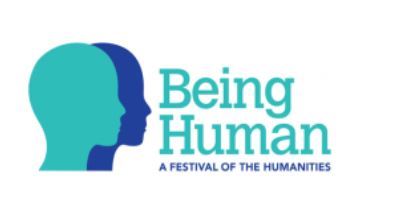 Being Human takes place 7-16 November this year and is marking its 10th anniversary with the theme of ‘Landmarks’. The organisers say: ‘We will be looking back on landmark events in our history, while imagining landmarks we might yet create. We invite researchers to join us in thinking about physical or metaphorical landmarks and how they shape our world.’
Being Human takes place 7-16 November this year and is marking its 10th anniversary with the theme of ‘Landmarks’. The organisers say: ‘We will be looking back on landmark events in our history, while imagining landmarks we might yet create. We invite researchers to join us in thinking about physical or metaphorical landmarks and how they shape our world.’ UKRIO has announced details of a forthcoming Free Webinar “Social Media and Ethics” on Wednesday 21st February from 10:00 – 11:00 BST.
UKRIO has announced details of a forthcoming Free Webinar “Social Media and Ethics” on Wednesday 21st February from 10:00 – 11:00 BST. 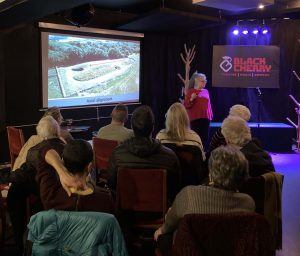
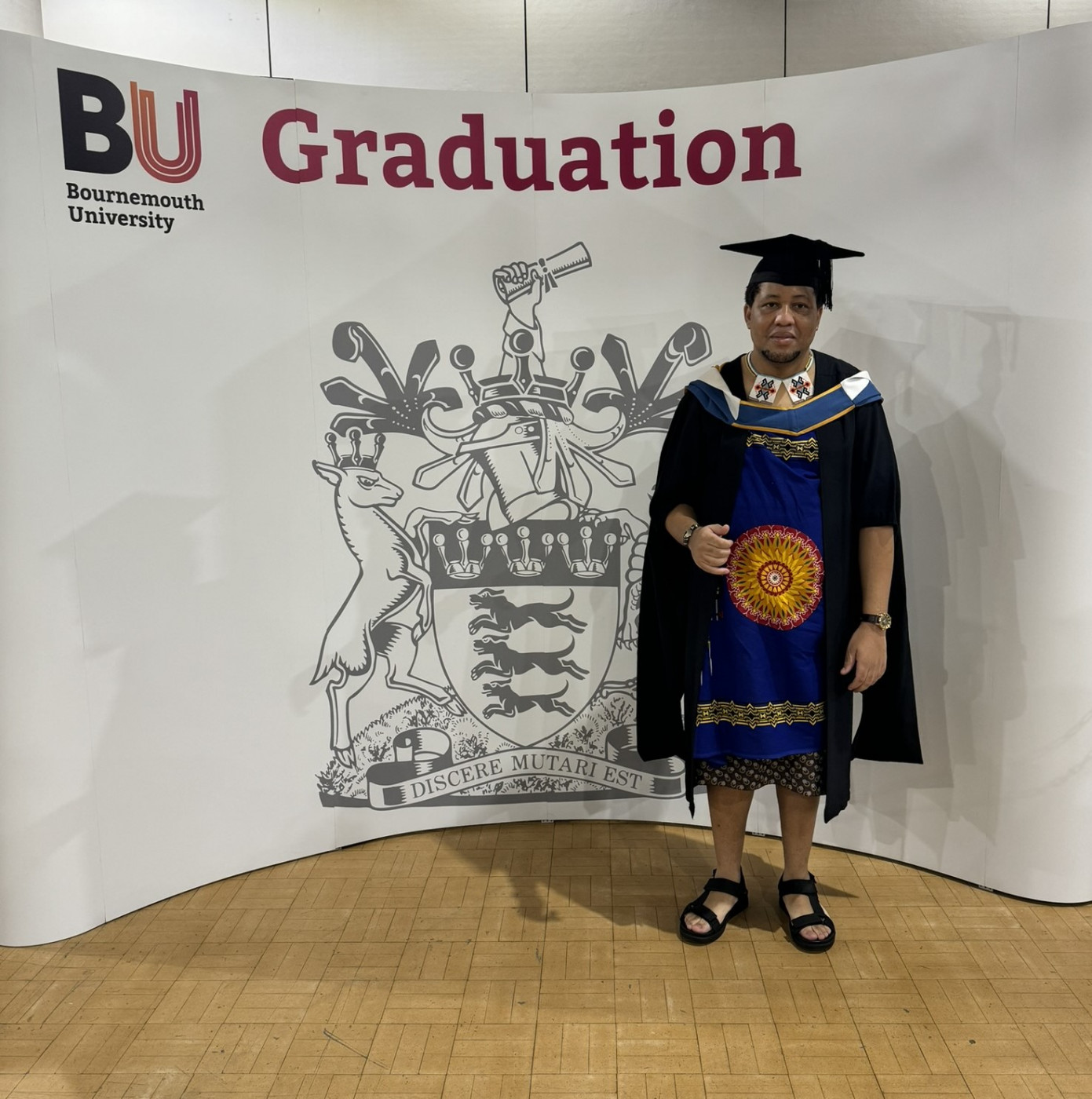

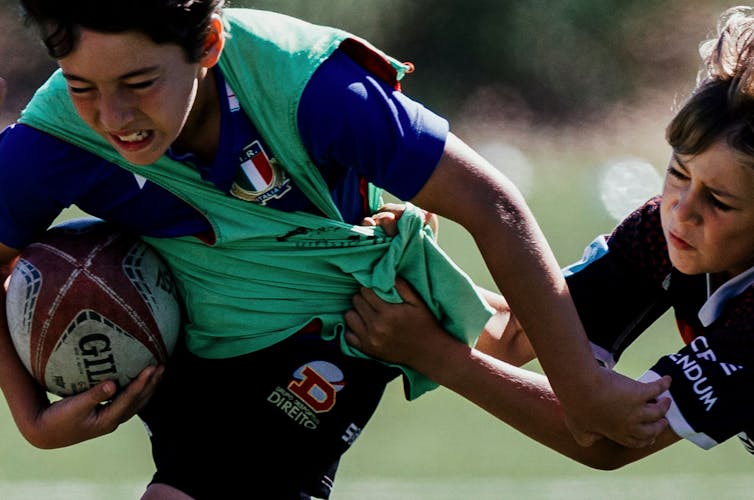
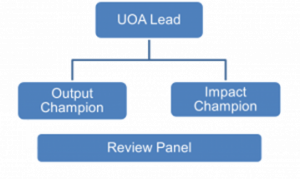
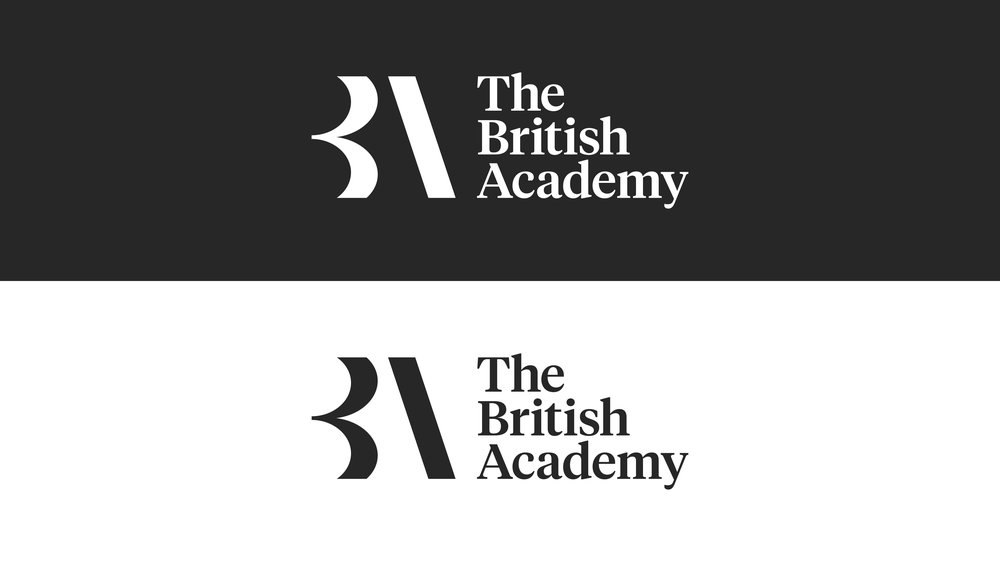
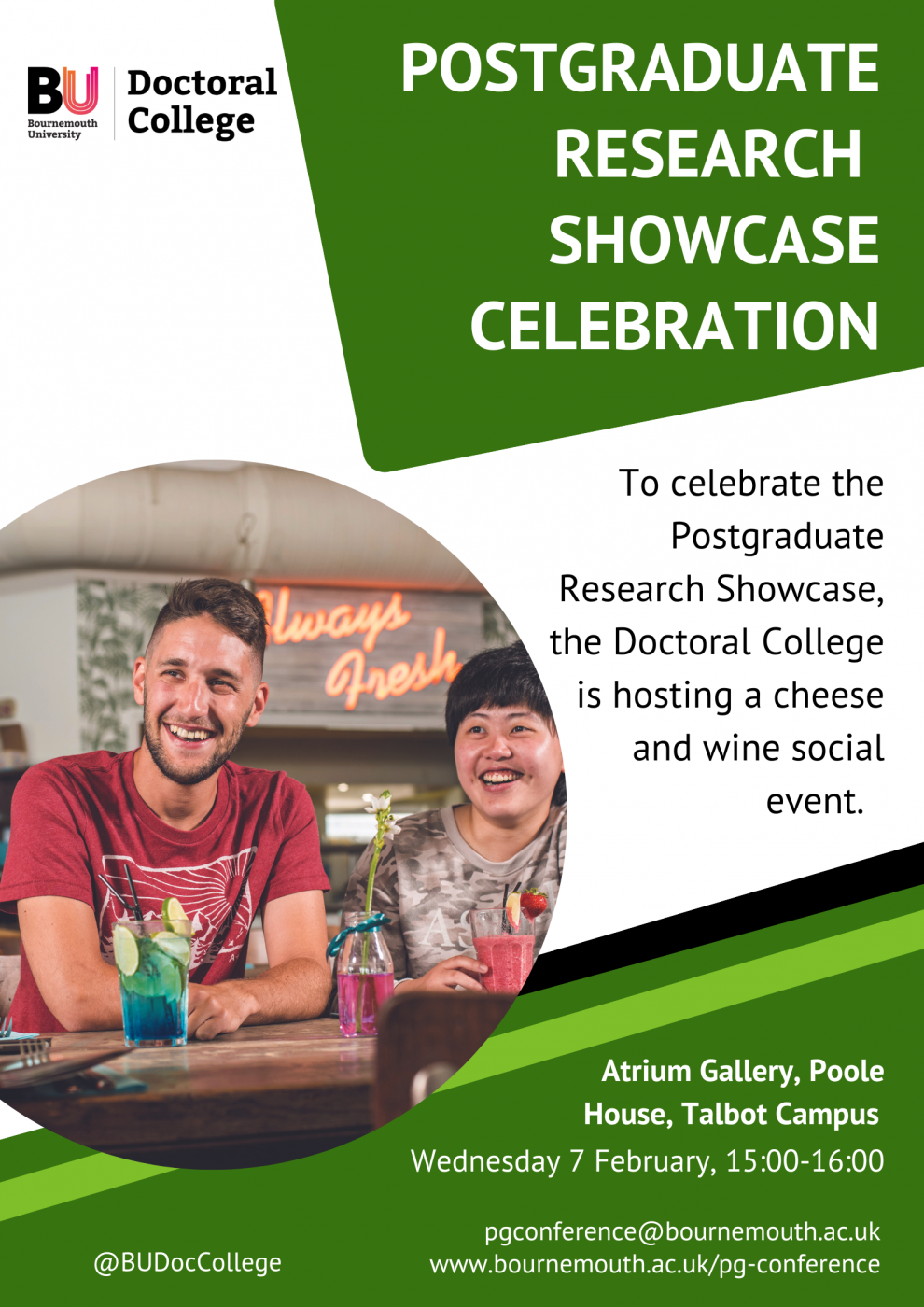


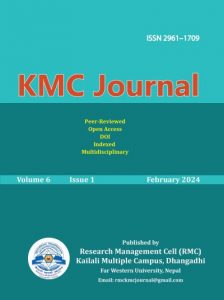












 From Sustainable Research to Sustainable Research Lives: Reflections from the SPROUT Network Event
From Sustainable Research to Sustainable Research Lives: Reflections from the SPROUT Network Event REF Code of Practice consultation is open!
REF Code of Practice consultation is open! BU Leads AI-Driven Work Package in EU Horizon SUSHEAS Project
BU Leads AI-Driven Work Package in EU Horizon SUSHEAS Project ECR Funding Open Call: Research Culture & Community Grant – Apply now
ECR Funding Open Call: Research Culture & Community Grant – Apply now ECR Funding Open Call: Research Culture & Community Grant – Application Deadline Friday 12 December
ECR Funding Open Call: Research Culture & Community Grant – Application Deadline Friday 12 December MSCA Postdoctoral Fellowships 2025 Call
MSCA Postdoctoral Fellowships 2025 Call ERC Advanced Grant 2025 Webinar
ERC Advanced Grant 2025 Webinar Update on UKRO services
Update on UKRO services European research project exploring use of ‘virtual twins’ to better manage metabolic associated fatty liver disease
European research project exploring use of ‘virtual twins’ to better manage metabolic associated fatty liver disease